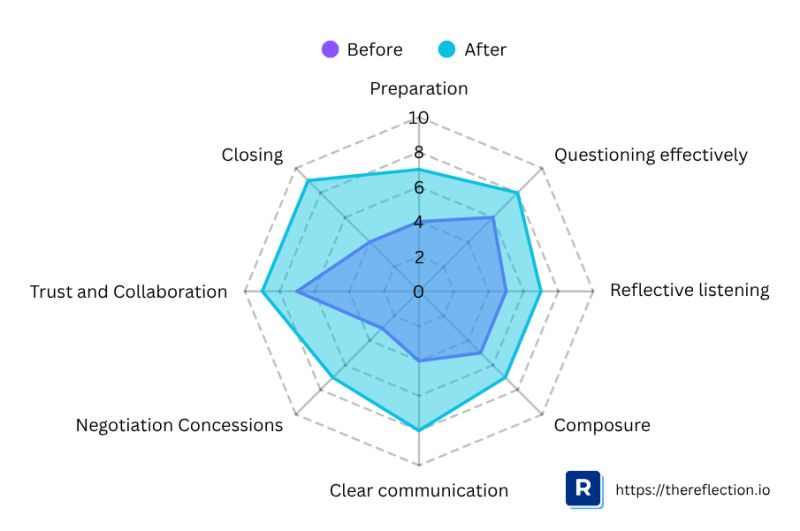As the end of the year approaches, thousands of organizations are preparing for one of the most emotionally charged business rituals: performance review season.
For HR and L&D leaders, it’s a time filled with forms, calibrations, and ratings.
But for managers, it’s something else entirely — a leadership test that goes far beyond process.
They need to balance honesty with empathy, deliver feedback that motivates rather than discourages, and manage not only their team’s emotions but their own.

Why performance reviews feel so uncomfortable
Many managers dread these conversations — not because they don’t care, but because they’ve never been taught how to handle them.
Traditional management training often focuses on frameworks, not feelings.
So when the moment comes to deliver a tough message, the conversation easily slips into one of two extremes:
• Too soft: avoiding clear feedback to keep the relationship safe.
• Too hard: focusing only on results and missing the human side of performance.
Neither approach builds trust. And over time, these experiences shape how people see feedback itself — as something to fear rather than something that helps them grow.

What good performance reviews actually feel like
A great performance review isn’t about ticking boxes or justifying ratings.
It’s a meaningful conversation that helps an employee understand where they stand, where they’re going, and how their manager will support them in getting there.
When done well, it feels fair, respectful, and useful — for both sides.
It reinforces clarity, trust, and shared ownership for future goals.
But here’s the truth: no one gets better at these conversations by reading about them.
They get better by practicing.
Turning stressful moments into learning moments
At The Reflection, we help managers prepare for these conversations through AI-powered role-plays that simulate real performance review discussions.
Instead of theory, they practice:
• delivering constructive feedback,
• handling emotional reactions,
• discussing growth plans and next steps.
Our simulations allow leaders to explore different approaches, see how their words land, and build confidence in a safe environment — before the real conversation happens.
We also design custom scenarios aligned with each organization’s leadership principles, feedback culture, and business priorities — ensuring that every simulation reflects real challenges, not generic scripts.
A better way forward
Most people dislike performance reviews — until they experience what a good one feels like.
With the right preparation, managers can transform them from stressful obligations into powerful moments of connection, trust, and growth.
Because in the end, performance reviews aren’t just about performance.
They’re about leadership.








